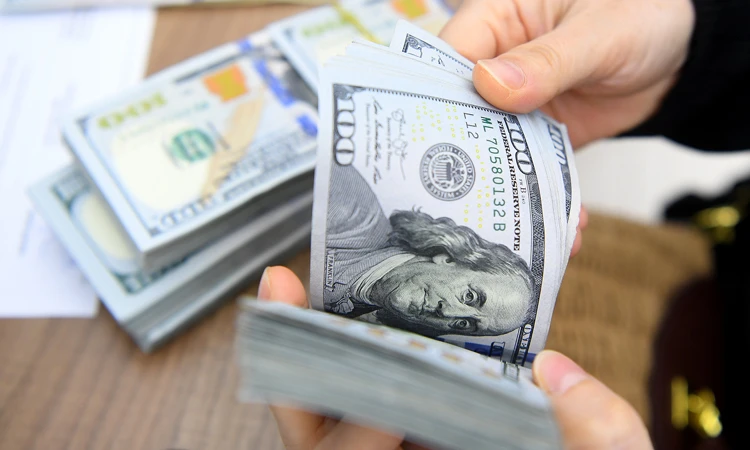
This assessment was directed to Vietnam actively devaluing the Vietnam dong lower than the US dollar by about 4.7% in 2019, and the Government intervention to increase foreign exchange reserves through purchase of USD 22 billion.
So far, both the Government and the State Bank of Vietnam have not commented on this issue, although Prime Minister Nguyen Xuan Phuc had recently stated that foreign exchange reserves were about USD 92 bn at present, and by the end of this year they were expected to reach USD 100 bn.
The US Treasury Department has undervalued the Vietnam dong as a result of net buying of USD 22 billion in 2019 to increase foreign exchange reserves in the State Bank of Vietnam. In its most recent report, the US Department of Finance has stated that foreign exchange reserves in Vietnam have been below standard for many years, similar to an earlier assessment at end of 2018 by the International Monetary Fund (IMF), which stated the foreign exchange reserves in Vietnam were at 76% of reasonable level.
If this is the case, then the increase in foreign exchange reserves by Vietnam is a legitimate need to ensure the safety of the national monetary system in context of an abundant supply of dollars in trade surplus, FDI investments and remittances. It is also being said that Vietnam still needs to increase foreign exchange reserves to about USD 150 bn in the next 12 to18 months, and possibly even higher, if the scale of the economy and the scale of imports and exports grow further.
The current fear is that Vietnam may be on the watch list of the US Treasury Department as a currency manipulator. The US Treasury Department report scheduled to be released in October 2020 will make clear if Vietnam is being assessed on all three criteria violations in 2019. Now, Vietnam must proactively take measures to minimize the risk of being labelled as a currency manipulator. This means explaining to the US Treasury Department about the necessity of Vietnam to increase foreign exchange reserves. At the same time, Vietnam needs to clarify the policy of the State Bank of Vietnam which did not deliberately devalue the Vietnam dong against the US dollar but was actually only supporting exports out of the country.
The amount of foreign currency purchased to increase the foreign exchange reserves by the State Bank of Vietnam was mainly derived from net investment inflow into the country. This action is consistent with a long-term goal to maintain exchange rate stability, and minimize the impact of inflation by large-scale exchange rate shocks. Without the intervention of the State Bank of Vietnam, the Vietnam dong will be under pressure to increase prices in the short term, and in the medium and long term it will be under huge pressure to decrease prices.
This is because foreign investment is usually withdrawn in times of economic fluctuation or global politic turmoil. Hence, the intervention of the State Bank of Vietnam is a move to stabilize the Vietnam dong against the US dollar in the short term and gradually increase the annual exchange rate. Foreign exchange reserves are a buffer that help alleviate the shock caused by foreign capital inflow.
Vietnam's ability to produce and provide goods and services is still limited, and is not creating a significant added value to the global production chain. The main export products of the domestic sector are agricultural products, raw materials and processed goods. In the last few years, Vietnam's trade surplus has been largely supported by exports from the FDI sector, but the trade balance has narrowed in the second quarter of the year. Furthermore, Vietnam's trade balance may be negatively impacted when foreign investors shift investments to countries with cheaper workforce than Vietnam, or move their investments to countries offering the latest 4.0 technology or better infrastructure.
In the past, the US Treasury Department has not been very rigid in evaluating other currency manipulating countries. However, in order to eliminate risks, it is necessary to proactively communicate and explain all stance taken by Vietnam. Even after being labelled as a currency manipulator, any country still has a whole year to hold bilateral dialogue with the USA to negotiate and resolve all such issues, before the USA finally decides on sanctions.
Nonetheless, in the future such a situation must be avoided. Vietnam now needs to improve trade surplus to the USA by buying more American products and goods, and simultaneously take maximum preventive measures against Chinese goods entering the USA by using Vietnam as a dispatch channel.




















